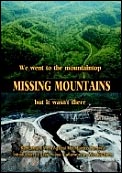A couple days ago, Jon Stewart interviewed Peter Tertzakian, author of A Thousand Barrels a Second: The Coming Oil Break Point and the Challenges Facing an Energy Dependent World. (You can watch the interview here.)
I haven’t read the book, so I don’t know what Tertzakian’s general outlook is, but I can tell you that on television his outlook is boooring. It’s highly unfortunate: The Daily Show reaches an extremely influential demographic, and the peak-oil issue desperately needs a higher profile on the cultural scene. A Daily Show interview is not the time for measured analysis; it’s the time to be funny and flamboyant and, OK, a little alarmist. We need people to pay attention.
But Tertzakian was soporific, droning on about energy "break points" and how we’ve weathered the previous ones pretty well, and how even though there’s no obvious alternative, we’ll muddle through, blah blah zzzz … I suspect he hasn’t been on TV much.
My one substantive critique was that he referred several times to the lack of an alternative energy source that could scale to oil’s breadth and depth. But what the public needs to understand is that we don’t need a single, silver-bullet alternative. What can replace oil is a diversity of small-scale sources (wind, solar, biothermal, hydro, cogeneration) appropriate to local conditions. We need to replace a single, concentrated source of power — both physical and political power — with a decentralized multiplicity of sources. This will be a boon — again, both physically and politically.
I wish everyone talking publicly about oil could at least get on the same page on that one talking point.


